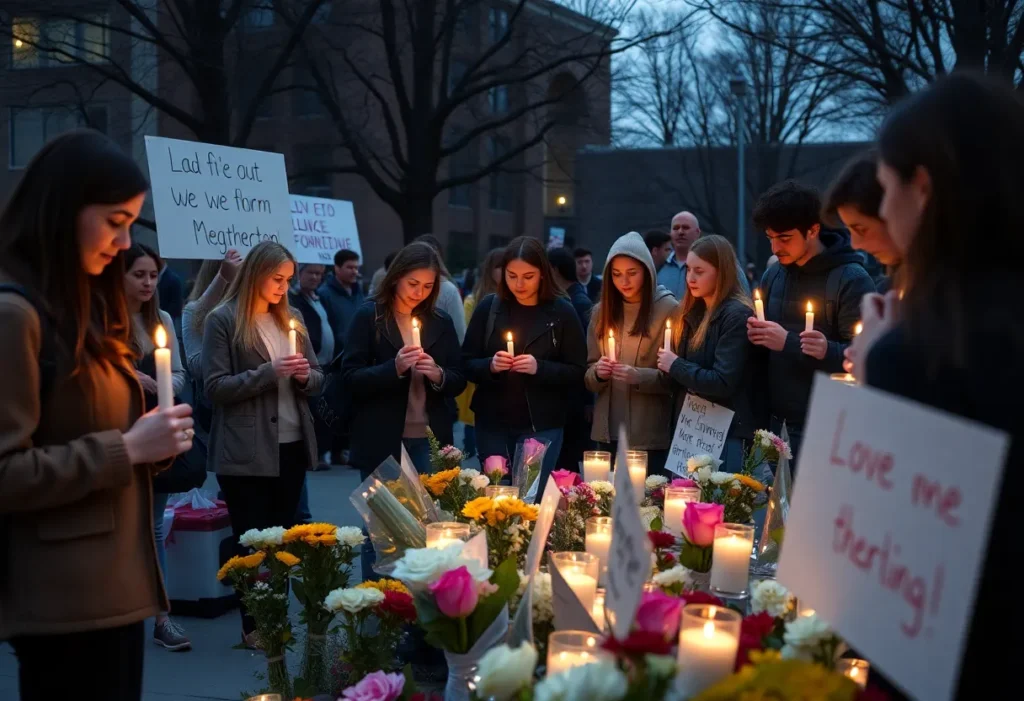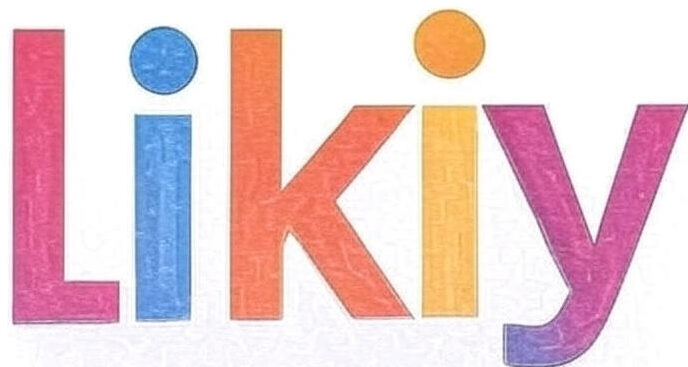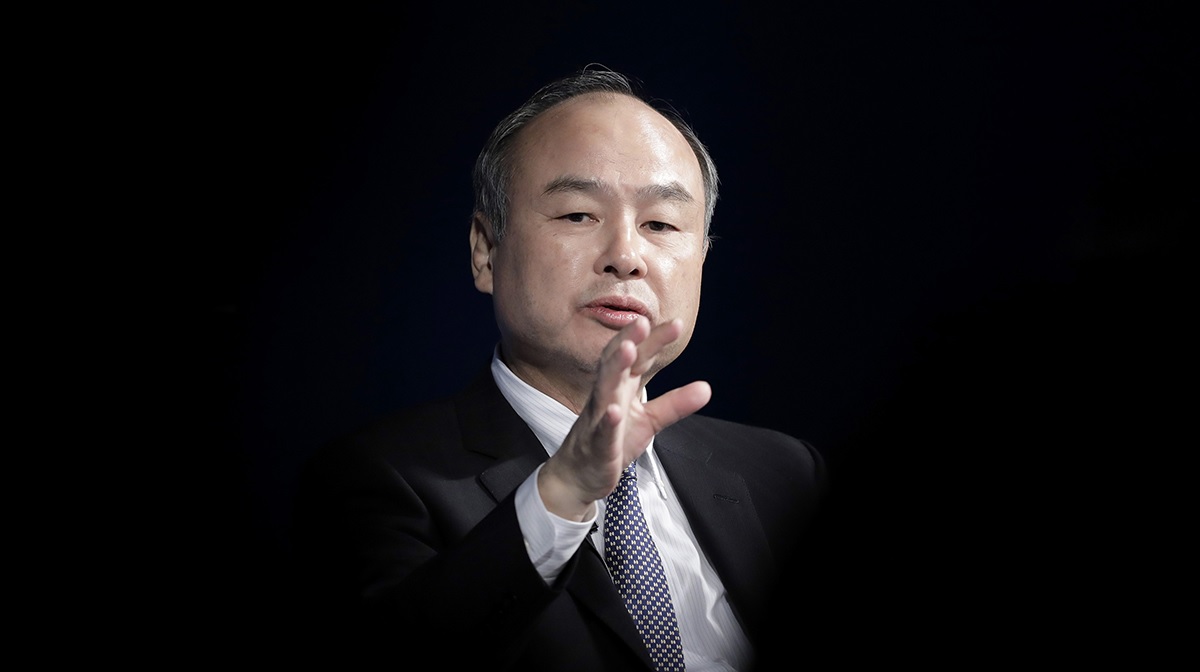In the wake of the shocking assassination of conservative activist Charlie Kirk at Utah Valley University on September 11, 2025, America finds itself grappling with yet another tragic chapter in its ongoing saga of political violence. Kirk, the co-founder and CEO of Turning Point USA, was fatally shot during a campus event, sparking a nationwide manhunt for the suspect and igniting fierce debates across the political spectrum. This Friday briefing delves deep into the implications of Charlie Kirk’s killing, exploring what it signals for the future of American politics, societal division, and the health of our democracy. As we navigate this turbulent time, questions arise: Is this a harbinger of escalating violence in a polarized nation? What does it mean for conservative movements and youth activism? And how can America heal from such wounds?
For those seeking more on political figures like Kirk, check out our in-depth profile on conservative influencers in America. Externally, the FBI’s ongoing investigation can be followed via their official updates here.

Who Was Charlie Kirk? A Brief Background on the Conservative Firebrand
Charlie Kirk, born in 1993, rose to prominence as a leading voice in conservative politics, particularly among young Americans. Founding Turning Point USA in 2012 at the age of 18, Kirk transformed the organization into a powerhouse for promoting free-market principles, limited government, and traditional values on college campuses nationwide. With over 2,500 chapters and millions of followers on social media, Kirk’s influence extended far beyond academia, making him a frequent guest on Fox News, a speaker at Republican National Conventions, and a close ally to former President Donald Trump.
Kirk’s rhetoric often polarized audiences. He advocated for strict immigration policies, criticized “woke” culture, and championed Second Amendment rights. His debates with left-leaning students went viral, amassing billions of views online. However, critics accused him of spreading misinformation on topics like election integrity and COVID-19 vaccines. Despite controversies, Kirk’s ability to mobilize young conservatives was unparalleled, earning him the moniker “the face of millennial conservatism.”
To learn more about Turning Point USA’s history, visit our internal archive on youth political movements. For a neutral biography, refer to Kirk’s Wikipedia page here.
The Tragic Event: What Happened at Utah Valley University?
On the afternoon of September 11, 2025—a date already laden with national trauma from the 2001 terrorist attacks—Charlie Kirk was addressing a crowd at Utah Valley University in Orem, Utah. The event, organized by Turning Point USA, focused on “Defending American Values in Higher Education.” Eyewitness accounts describe a routine speech turning chaotic when shots rang out from a nearby building.
According to official reports, Kirk was struck multiple times and pronounced dead at the scene despite rapid response from emergency services. The shooter, described as a person of interest in newly released FBI footage, fled by jumping from a rooftop, evading immediate capture. Video evidence shows the suspect navigating the campus with apparent familiarity, leading investigators to speculate about a possible connection to the university community. Utah Governor Spencer Cox condemned the act, vowing to pursue the death penalty and urging citizens to ignore unverified online streams.
The attack was deemed targeted, with no other casualties reported. Federal authorities, including the FBI, have launched a manhunt, releasing images and videos of the suspect. Speculation abounds online, with some X (formerly Twitter) users questioning if the suspect was a college student, while others decry the politicization of the tragedy.
For real-time updates on the investigation, follow CBS News’ live coverage here. Internally, read our analysis on campus security and political events.

Immediate Reactions: A Nation Divided in Grief and Anger
The news of Charlie Kirk’s killing spread like wildfire, eliciting a spectrum of responses that underscore America’s deep divisions. Conservative figures, including Donald Trump Jr. and Matt Walsh of The Daily Wire, mourned Kirk as a martyr for free speech, with Walsh stating, “They killed him for trying to have conversations.” Townhall compiled lists of professionals allegedly celebrating the death, highlighting instances of online vitriol.
On the left, reactions were mixed. California Governor Gavin Newsom issued a statement condemning the violence, calling Kirk a “conservative thought leader” while emphasizing the need for unity. However, some social media users faced backlash for insensitive comments, such as one X post suggesting Kirk “lived by the sword.” Author Stephen King was criticized for past remarks on Kirk, though legal experts note defamation laws don’t apply to the deceased.
Public opinion polls conducted in the hours following the event reveal a stark divide: A New York Times survey found that while most Americans condemn the violence, a significant portion believe political rhetoric has escalated tensions. Voters like Edward, interviewed by the Times, expressed dual sentiments of horror and reflection on the state of U.S. politics.
Explore our opinion pieces on political rhetoric and violence. For broader context, see Al Jazeera’s live blog here.
Broader Implications: Signaling Escalating Political Violence
Charlie Kirk’s killing is not an isolated incident but a symptom of a broader trend in American political violence. From the January 6 Capitol riot to assassination attempts on former President Trump, the nation has seen a surge in threats against public figures. The PBS analysis notes how graphic videos of the shooting proliferated online, illustrating the media’s evolving role in real-time coverage.
This event signals a dangerous escalation where ideological differences turn deadly. Kirk’s work on campuses, often contentious, highlights the risks faced by activists in polarized environments. Experts warn that without de-escalation, such acts could become more frequent, eroding trust in institutions.
In terms of SEO-optimized insights, searches for “Charlie Kirk death implications” and “political assassinations 2025” are spiking, reflecting public concern. Our site offers related content on rising political threats.
Historically, compare this to the assassinations of figures like Martin Luther King Jr. or John F. Kennedy, which spurred civil rights advancements and conspiracy theories, respectively. Kirk’s death may similarly catalyze changes in conservative youth organizing or gun control debates.
For historical parallels, visit History.com’s article on political assassinations in America.
What It Means for Conservatism and Youth Activism
Charlie Kirk’s absence leaves a void in the conservative movement, particularly among Gen Z and millennials. Turning Point USA, under his leadership, raised millions and influenced elections. His killing could galvanize supporters, boosting donations and membership, or deter participation due to safety fears.
Analysts predict a shift toward more secure, virtual events, potentially limiting grassroots engagement. For America’s future, this signals a challenge for fostering civil discourse on campuses, where Kirk often debated opponents.
Internally, read our feature on future of Turning Point USA. Externally, AP News provides details on the organization’s response here.
The Role of Media and Social Platforms in Amplifying Division
The rapid dissemination of shooting videos via X and other platforms underscores how social media fuels division. BBC reports on the suspect’s flight footage going viral, prompting calls for better content moderation. Posts celebrating or condemning the act reveal echo chambers, where algorithms amplify extreme views.
This signals a future where misinformation could incite more violence. Policymakers may push for reforms, but free speech advocates resist. like “social media role in political violence” are key.
Check our tech section for social media and politics. See The Guardian’s coverage here.
Potential Impact on 2025 Politics and Beyond
With the 2024 election in the rearview (assuming a hypothetical outcome),Charlie Kirk’s killing could influence midterm strategies. Republicans may rally around “law and order,” while Democrats emphasize gun reform. It signals a precarious future where violence overshadows policy debates.
Long-term, it may prompt bipartisan efforts against extremism, or deepen trenches. Voters agree something is wrong, per NYT.
For election insights, visit our 2026 midterms preview.
Calls for Unity and Healing: A Path Forward
Amid grief, leaders like Newsom call for reflection.Charlie Kirk killing signals the urgent need for dialogue over destruction. America’s future depends on bridging divides, protecting free speech, and preventing violence.
In conclusion, this tragedy is a wake-up call. As we brief on Fridays, let’s commit to a better tomorrow.
For more briefings, subscribe to Likiy.net’s newsletter here. Share your thoughts in the comments below.
Frequently Asked Questions: Friday Briefing – What Charlie Kirk’s Killing Signals for America’s Future
If you’re here, you’re likely seeking clarity on the tragic events surrounding the assassination of conservative activist Charlie Kirk and the implications explored in our Friday Briefing article. This is designed to address the most common questions about the incident, its background, and what it means for America’s political landscape. Our briefing, published today on Likiy.net’s Politics Section, dives deep into the signals this killing sends for the future of U.S. democracy, polarization, and youth activism. For the full article, visit Friday Briefing: What Charlie Kirk’s Killing Signals for America’s Future.
“Charlie Kirk shooting,” “Charlie Kirk assassination 2025,” and “political violence in America” to help you find the information you need. If your question isn’t covered, explore our related content on conservative influencers or submit a query via our contact form. For external updates, follow the FBI’s investigation here.
1. Who Was Charlie Kirk, and Why Was He Significant in American Politics?
Charlie Kirk was a prominent conservative activist, author, and media personality, best known as the co-founder and CEO of Turning Point USA (TPUSA), a nonprofit organization focused on promoting conservative values among young people. Born in 1993 in Illinois, Kirk dropped out of college to launch TPUSA in 2012 at age 18. The group grew rapidly, establishing over 2,500 chapters on college campuses across the U.S., emphasizing free-market principles, limited government, Second Amendment rights, and opposition to “woke” culture and progressive policies on issues like immigration and education.
Kirk’s influence extended far beyond campuses. He became a key ally to former President Donald Trump, speaking at Republican National Conventions, appearing frequently on Fox News, and mobilizing young voters for GOP causes. His “Prove Me Wrong” debate tours, where he engaged students on hot-button topics, went viral, amassing billions of views on social media. Critics often accused him of spreading misinformation on election integrity, COVID-19 vaccines, and racial issues, but supporters hailed him as a defender of free speech and traditional values. At 31, Kirk was married with young children, and his death has left a void in the conservative youth movement.
For more on Charlie Kirk life and legacy, read our in-depth profile in the briefing or visit his Wikipedia page here. Related reading on Likiy.net: Youth Political Movements.
2. What Happened in the Charlie Kirk Shooting? When and Where Did It Occur?
The fatal shooting of Charlie Kirk occurred on September 10, 2025 (noted in some reports as the 11th due to time zones), at Utah Valley University (UVU) in Orem, Utah, during a TPUSA event called the “American Comeback Tour.” Kirk was speaking to a crowd of about 3,000 students and attendees in an outdoor “quad” area, under a white gazebo, as part of his signature “Prove Me Wrong” debate format. Approximately 20 minutes into the presentation, while fielding questions on topics like mass shootings and transgender issues, a single gunshot rang out from a rooftop on campus.
Eyewitness footage captured the moment: Kirk was struck in the neck and collapsed immediately. Emergency services responded quickly, but he was pronounced dead at Timpanogos Regional Hospital shortly after. No other casualties were reported, and the event was described as a targeted attack. The shooter, captured on security cameras in dark clothing, fled by climbing down from the rooftop and evading capture initially. The date’s proximity to the 9/11 anniversary added to the national shock.
For visual details, see ABC News’ coverage of the released video here. On Likiy.net, explore Campus Security and Political Events for analysis.
3. Who Is the Suspect in Charlie Kirk’s Assassination, and Has There Been an Arrest?
As of September 12, 2025, a massive manhunt is underway for the suspect, described by authorities as a “person of interest” in newly released FBI footage and images. The individual is seen in CCTV and drone video wearing all-dark clothing, navigating the campus with apparent familiarity, and fleeing from a rooftop after the shot. Utah Department of Public Safety Commissioner Beau Mason noted the footage quality is limited but shows a “longer distance shot” from a roof. Officials believe the attacker may have ties to the university community, though no motive has been confirmed.
The FBI, alongside state and local law enforcement, is offering a $100,000 reward for information leading to the suspect’s identification and arrest. Two individuals were briefly taken into custody on September 11 but released after being cleared of involvement. FBI Director Kash Patel stated on social media that the subject is now in custody, but this has not been officially confirmed by all agencies as of this writing—check for updates. Utah Governor Spencer Cox has vowed to pursue the death penalty, calling it a “political assassination.”
Track the latest via CBS News’ live updates here. For X (Twitter) reactions, see recent posts on the manhunt here.
4. What Are the Immediate Reactions to Charlie Kirk’s Death from Political Leaders and the Public?
Reactions to Charlie Kirk’s killing have been swift and polarized, reflecting America’s deep political divides. Conservative leaders mourned him as a martyr for free speech. President Donald Trump blamed the “radical left” in a video statement, urging commitment to “American values” like free speech and patriotism. Vice President JD Vance transported Kirk’s casket on Air Force Two, and Trump plans to attend the funeral. Figures like Speaker Kevin McCarthy prayed for justice, emphasizing Kirk’s role in open campus discussions. First Lady Melania Trump highlighted compassion, while Health Secretary Robert F. Kennedy Jr. called it a silencing of a “truth teller.”
Democrats, including California Governor Gavin Newsom, condemned the violence and called for unity, though some faced backlash for past criticisms of Kirk. UK Prime Minister Keir Starmer expressed heartbreak, stressing no justification for political violence. Author Stephen King labeled it “another example of American gun violence.” Public sentiment on X shows grief from conservatives and mixed responses from others, with some posts celebrating or blaming rhetoric—leading to firings for insensitive comments. A New York Times poll indicates most Americans condemn the act but see escalating rhetoric as a factor.
On Likiy.net, see Political Rhetoric and Violence. External: The Guardian’s live blog here.
5. What Does Charlie Kirk’s Killing Signal for the Future of American Politics?
Our Friday Briefing argues that Kirk’s assassination signals a dangerous escalation in political violence, potentially reshaping U.S. politics. It highlights a trend following events like the January 6 Capitol riot and 2024 attempts on Trump, suggesting ideological battles are turning deadly. Experts warn of eroded trust in institutions, with campuses—Kirk’s battleground—becoming riskier for activism. This could galvanize conservatives, boosting TPUSA donations and voter turnout, or deter youth involvement due to safety fears, shifting to virtual events.
Long-term, it may influence 2026 midterms: Republicans could emphasize “law and order,” while Democrats push gun reform. Bipartisan anti-extremism efforts might emerge, but divisions could deepen. Historically, assassinations like MLK’s spurred reforms; Kirk’s may catalyze free speech protections or conspiracy theories. Searches for “Charlie Kirk death implications” are surging, per SEO trends.
Dive deeper in the full briefing or our Rising Political Threats series. Historical context: Political Assassinations in U.S. History.



